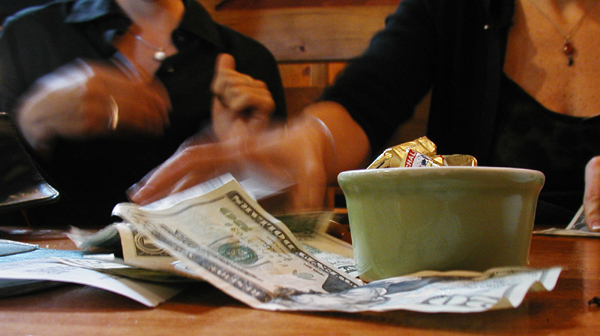This week's excerpt comes from chapter 9 of A Vindication of the Rights of Woman: "Of the Pernicious Effects Which Arise from the Unnatural Distinctions Established in Society."
From the respect paid to property flow, as from a poisoned fountain, most of the evils and vices which render this world such a dreary scene to the contemplative mind. For it is in the most polished society that noisome reptiles and venomous serpents lurk under the rank herbage; and there is voluptuousness pampered by the still sultry air, which relaxes every good disposition before it ripens into virtue.That sounds very like "For the love of money is the root of all evil" -- not money itself, but loving it above all else; not property itself, but respecting it to the exclusion of other values. I take the last bit to mean that children may be fundamentally of good character, but this doesn't have a chance to develop if they grow up in luxury, which weakens them morally.
One class presses on another; for all are aiming to procure respect on account of their property: and property, once gained, will procure the respect due only to talents and virtue. Men neglect the duties incumbent on man, yet are treated like demi-gods; religion is also separated from morality by a ceremonial veil, yet men wonder that the world is almost, literally speaking, a den of sharpers or oppressors.She seems to be saying that, no matter what class we come from, we all seek respect from others by showing off our money, our houses, our cars, our clothes, our holidays. Once we have these, it doesn't matter whether we have any worthwhile skills to offer or goodness inside us. -- Celebrity culture? -- And I think the "men" here are people, not just male people: we will treat some frail humans like idols, even if they treat those around them very badly indeed. -- Pop Idol? Celebrity Has Talent?
There is a homely proverb, which speaks a shrewd truth, that whoever the devil finds idle he will employ. And what but habitual idleness can hereditary wealth and titles produce? For man is so constituted that he can only attain a proper use of his faculties by exercising them, and will not exercise them unless necessity, of some kind, first set the wheels in motion. Virtue likewise can only be acquired by the discharge of relative duties; but the importance of these sacred duties will scarcely be felt by the being who is cajoled out of his humanity by the flattery of sycophants. There must be more equality established in society, or morality will never gain ground...."The devil makes work for idle hands." Not an adage often heard these days. The problem of hereditary money is a very current one, and can only become more so with the increasing concentration of the world's wealth among the plutocracy. Rich kids: how to handle them? And those whose talent and hard work elevate them very young into the pop aristocracy: sportsmen, singers, actors. And those who are famous for being famous: from the vulgarati of the unreality shows, to the posh girls from country estates, perhaps both photographed stumbling out of the same nightclubs, perhaps both sharing the same drug dealer.
Those who are cajoled out of their humanity by the flattery of sycophants... the echo chamber of fame, the Hall of Mirrors of TV and tabloids. Lillie Langtry and the cult of celebrity, from the 1870s. The It girls, dating from Clara Bow in the 1920s. "Famous for fifteen minutes", as Andy Warhol said in 1968. None of these phenomena are new, but it seems to be ramped up these days. From society beauties to celebutantes - what would Mary Wollstonecraft have made of it all?
Photo: By marya from San Luis Obispo, USA (day in the life: lunch money)
[CC-BY-2.0 (www.creativecommons.org/licenses/by/2.0)], via Wikimedia Commons

No comments:
Post a Comment